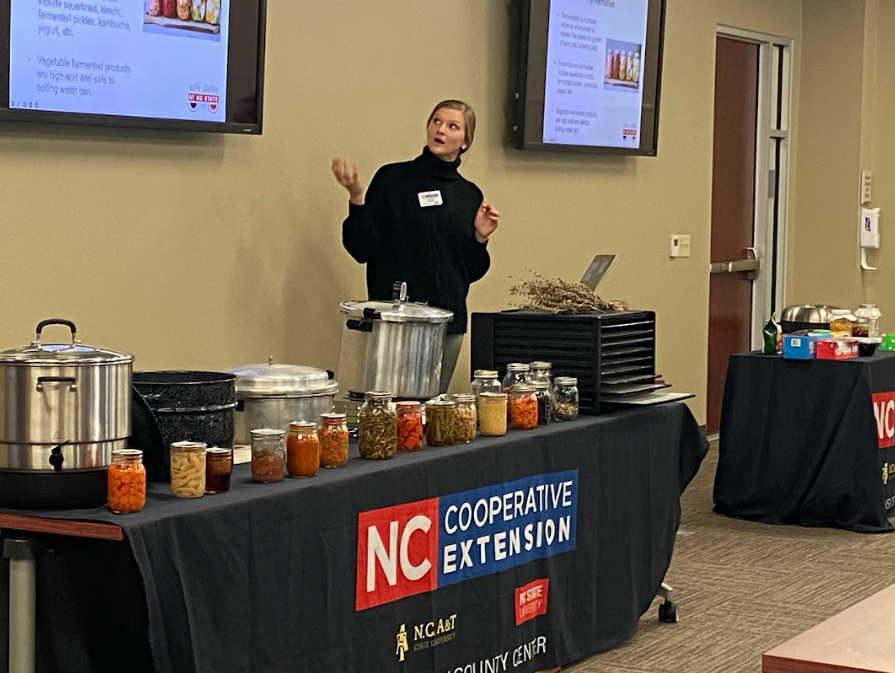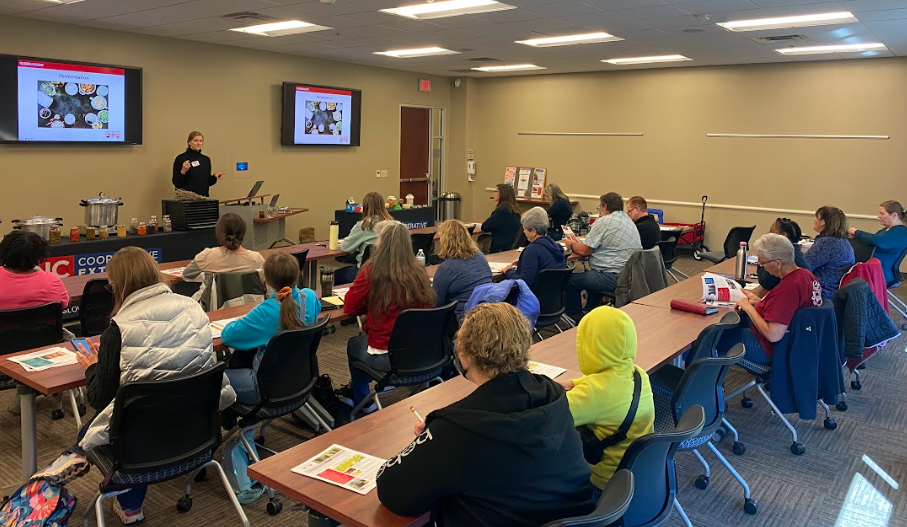Back to Basics: Backyard Food Production
go.ncsu.edu/readext?972957
en Español / em Português
El inglés es el idioma de control de esta página. En la medida en que haya algún conflicto entre la traducción al inglés y la traducción, el inglés prevalece.
Al hacer clic en el enlace de traducción se activa un servicio de traducción gratuito para convertir la página al español. Al igual que con cualquier traducción por Internet, la conversión no es sensible al contexto y puede que no traduzca el texto en su significado original. NC State Extension no garantiza la exactitud del texto traducido. Por favor, tenga en cuenta que algunas aplicaciones y/o servicios pueden no funcionar como se espera cuando se traducen.
Português
Inglês é o idioma de controle desta página. Na medida que haja algum conflito entre o texto original em Inglês e a tradução, o Inglês prevalece.
Ao clicar no link de tradução, um serviço gratuito de tradução será ativado para converter a página para o Português. Como em qualquer tradução pela internet, a conversão não é sensivel ao contexto e pode não ocorrer a tradução para o significado orginal. O serviço de Extensão da Carolina do Norte (NC State Extension) não garante a exatidão do texto traduzido. Por favor, observe que algumas funções ou serviços podem não funcionar como esperado após a tradução.
English
English is the controlling language of this page. To the extent there is any conflict between the English text and the translation, English controls.
Clicking on the translation link activates a free translation service to convert the page to Spanish. As with any Internet translation, the conversion is not context-sensitive and may not translate the text to its original meaning. NC State Extension does not guarantee the accuracy of the translated text. Please note that some applications and/or services may not function as expected when translated.
Collapse ▲In response to a growing interest in sustainable living and self-sufficiency within the community, N.C. Cooperative Extension, Onslow County Center offered a class series called “Back to Basics: Backyard Food Production.” The series consisted of three classes designed to empower community members with the knowledge and skills needed to produce their own food. The first session focused on raising backyard livestock, the second session covered growing produce, and the third session delved into the science of preserving harvested produce.
The first class, Raising Backyard Livestock, led by the livestock Agent, Melissa Huffman, provided participants with practical knowledge on raising backyard livestock. From selecting appropriate species of livestock based on area, fencing and forage options, attendees gained insights into integrating livestock.
The second class, led by Emilee Morrison & Lisa Rayburn, was dedicated to empowering community members with the skills to grow their own produce. Participants learned the fundamentals of soil preparation, seed selection, and sustainable gardening practices.
The last class was a food preservation-focused class led by Family & Consumer Sciences Agents Sarah Ware & Jessica Gardener. Attendees learned research-based preservation techniques, including canning, freezing, and drying.
The “Back to Basics: Backyard Food Production” was well received by members of the community. A total of 45 individuals participated in the series with an average of 20 attending each class. Each session received positive feedback, with participants reported learning gains on the various topics. Based on survey feedback, 100% of participants expressed that they were “satisfied” to “very satisfied” with the information presented. The evaluation showed all participants’ knowledge was increased in all three classes. Additionally, many participants requested additional training on these and other related topics, which shows the need for this type of programming. That data is being used to guide our programming efforts in the upcoming year. This series stands as an example of how targeted education can inspire positive change, fostering a community that is not only self-sufficient but also connected through a shared commitment to sustainable living.





